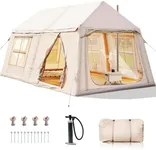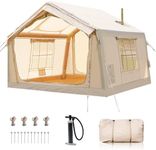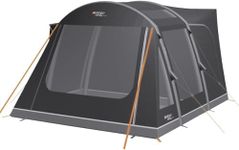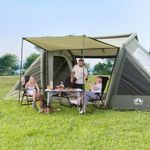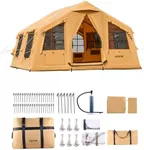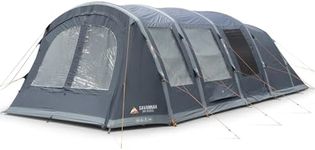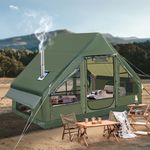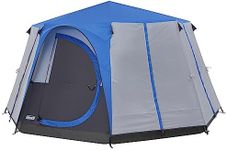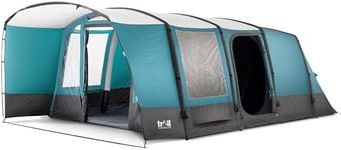Buying Guide for the Best Inflatable Tents
Inflatable tents are a modern and convenient option for camping enthusiasts. They are designed to be easy to set up, as they use air-filled beams instead of traditional poles. This makes them a great choice for those who want to spend less time setting up camp and more time enjoying the outdoors. When choosing an inflatable tent, it's important to consider several key specifications to ensure you select the best fit for your needs. These specifications will help you determine the tent's suitability for different weather conditions, the number of occupants, and the ease of use.Size and CapacitySize and capacity refer to the dimensions of the tent and how many people it can comfortably accommodate. This is important because it determines how much space you will have inside the tent for sleeping and storing gear. Inflatable tents come in various sizes, from small two-person tents to large family-sized tents. When choosing the right size, consider the number of people who will be using the tent and whether you need extra space for gear or activities. If you plan to camp with family or friends, a larger tent with multiple rooms might be ideal, while solo campers or couples might prefer a smaller, more compact option.
Material and DurabilityThe material and durability of an inflatable tent are crucial for ensuring it can withstand different weather conditions and last for multiple camping trips. Most inflatable tents are made from polyester or nylon, which are lightweight and water-resistant. Some tents also have a higher denier rating, indicating thicker and more durable fabric. When choosing a tent, consider the typical weather conditions you will encounter. If you expect heavy rain or strong winds, look for a tent with a high waterproof rating and reinforced seams. For fair-weather camping, a lighter material may suffice.
Weather ResistanceWeather resistance refers to the tent's ability to protect you from the elements, such as rain, wind, and UV rays. This is important for ensuring comfort and safety during your camping trip. Inflatable tents often have a waterproof rating, measured in millimeters, which indicates how well they can keep water out. A higher rating means better water resistance. Additionally, some tents have UV protection to prevent sun damage. When selecting a tent, consider the climate and weather conditions of your camping destination. For rainy or windy areas, choose a tent with high weather resistance. For sunny locations, UV protection is a valuable feature.
Ease of SetupEase of setup is a key advantage of inflatable tents, as they are designed to be quick and simple to pitch. This is important for reducing the time and effort required to set up camp, especially after a long day of travel. Inflatable tents typically come with a pump to inflate the air beams, and the process can take just a few minutes. When choosing a tent, consider how easy it is to set up and pack away. Look for features like color-coded valves or a straightforward inflation system. If you are new to camping or prefer a hassle-free experience, prioritize tents that are known for their ease of setup.
VentilationVentilation in an inflatable tent is crucial for maintaining a comfortable interior climate and reducing condensation. Good ventilation helps to circulate air, keeping the tent cool in warm weather and preventing moisture buildup. Most inflatable tents have mesh windows, vents, or doors to facilitate airflow. When choosing a tent, consider the ventilation features and how they align with your camping environment. For hot and humid conditions, look for tents with ample mesh panels and adjustable vents. In cooler climates, ensure the tent can be sealed to retain warmth while still allowing some airflow to prevent condensation.



